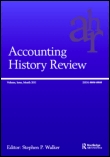
Accounting History Review
Scope & Guideline
Advancing Knowledge Through the Lens of Accounting History
Introduction
Aims and Scopes
- Historical Analysis of Accounting Practices:
The journal emphasizes a historical perspective on accounting, examining how practices, standards, and systems have evolved over time across different cultures and periods. - Interdisciplinary Approaches:
It encourages interdisciplinary research that integrates accounting with other fields such as economics, sociology, history, and political science, thereby enriching the understanding of accounting's role in society. - Focus on Social Accountability:
There is a consistent focus on the social and moral dimensions of accounting, including themes like corporate social responsibility and ethical considerations in historical contexts. - Case Studies and Empirical Research:
The journal publishes case studies and empirical research that investigate specific instances of accounting practices, allowing for a detailed examination of historical events and their implications. - Impact of Historical Events on Accounting:
Research often explores how significant historical events, such as wars, economic crises, and political changes, have influenced accounting practices and regulations.
Trending and Emerging
- Sustainability and Environmental Accounting:
Recent studies are increasingly focusing on the historical context of sustainability and environmental accounting, highlighting how past practices inform current sustainability initiatives. - Cultural and Artistic Influences on Accounting:
There is a growing interest in how cultural and artistic contexts, such as the economic conditions surrounding artists, influence accounting practices, indicating a trend toward understanding the socio-cultural dimensions of accounting. - Gender and Diversity in Accounting History:
Emerging research is exploring themes of gender and diversity within the accounting profession's historical context, reflecting a broader societal focus on equity and representation. - Impact of Political and Economic Changes:
The journal is seeing a trend in research that examines the role of accounting during significant political and economic transitions, such as revolutions or major policy shifts, emphasizing the interconnectedness of accounting and historical events. - Technological Changes and Accounting Evolution:
There is an increasing focus on how technological advancements have historically influenced accounting practices, suggesting a recognition of the role of technology in shaping the profession.
Declining or Waning
- Traditional Financial Accounting Practices:
Research focused solely on traditional financial accounting practices without historical context has become less frequent, as scholars increasingly seek to understand accounting within broader societal narratives. - Narrow Geographical Focus:
There appears to be a waning interest in studies that concentrate exclusively on accounting practices within limited geographical boundaries, with a shift toward more global or comparative analyses. - Historical Auditing Practices:
The exploration of historical auditing practices has diminished, possibly due to a growing interest in contemporary issues and the evolution of auditing in the modern context. - Theoretical Constructs Without Empirical Evidence:
There is a noticeable decline in papers that propose theoretical constructs without robust empirical backing, as the journal increasingly values evidence-based research that connects historical insights with contemporary relevance.
Similar Journals

HISTORICAL JOURNAL
Exploring the Depths of History.Historical Journal, published by Cambridge University Press, is a premier academic journal dedicated to the field of history, catering to a diverse audience of researchers, scholars, and students. With an impressive impact factor reflected in its standing as a Q1 journal in history (2023), it ranks #179 out of 1,760 journals in the Arts and Humanities category, placing it in the 89th percentile. Since its inception in 1958, the journal has provided a platform for rigorous historical analysis and innovative research, covering various themes and periods. Although it is not an open-access journal, it offers a wealth of scholarly articles that contribute significantly to the advancement of historical knowledge. Scholars seeking to publish their work or stay informed on the latest developments in the discipline will find the Historical Journal an invaluable resource in the landscape of historical research.

Contaduria Universidad de Antioquia
Nurturing Academic Collaboration in Economic SciencesContaduria Universidad de Antioquia, published by UNIV ANTIOQUIA, FAC CIENCIAS ECONOMICAS, is a leading journal in the field of accounting and finance, offering a rich platform for scholarly discourse since its inception in 1982. This Open Access journal has become a crucial resource for researchers, practitioners, and students, fostering knowledge dissemination and collaboration across disciplines. With an ISSN of 0120-4203 and E-ISSN 2590-4604, it caters to a global audience while maintaining a strong focus on issues pertinent to economic sciences within Colombia and Latin America. The journal’s commitment to high-quality research ensures that it continues to be referenced and respected within academic circles, empowering professionals to stay informed on the latest developments in accounting practices and economic trends. Scholars are encouraged to submit their work to this vibrant academic community, located at CALLE 67 N 53-108, BLOQUE 13 OFICINA 121, APARTADO AEREO 1226, MEDELLIN, COLOMBIA, where innovation in financial studies is not only welcomed but celebrated.

Asian Journal of Accounting and Governance
Exploring Innovative Pathways in AccountingAsian Journal of Accounting and Governance, published by Penerbit Universiti Kebangsaan Malaysia, is a vital resource in the field of accounting and governance studies. With its commitment to enhancing the scholarly discourse in Asia and beyond, the journal serves as a platform for innovative research, critical analyses, and discussions that address contemporary issues in accounting practices and governance frameworks. Although specific metrics such as HIndex or Scopus rankings may not be provided, the significance of this journal is underscored by its accessible and scholarly content aimed at researchers, professionals, and students alike. The journal is dedicated to the principles of open access, encouraging broad dissemination and engagement with cutting-edge research in the discipline. Embracing a multidisciplinary approach, the Asian Journal of Accounting and Governance aspires to contribute meaningfully to the understanding and advancement of effective accounting systems and governance practices within diverse contexts.
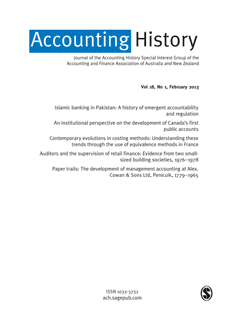
Accounting History
Discovering the Roots of Accounting's Modern PracticesAccounting History, published by SAGE Publications Ltd, is a distinguished journal that has been at the forefront of scholarly discourse since its inception in 1996. With its ISSN 1032-3732 and E-ISSN 1749-3374, it serves as a crucial platform for researchers and practitioners interested in the intersection of accounting practices and historical contexts. The journal holds impressive rankings, notably placing in the Q2 category in Accounting and Q1 in History as of 2023, underscoring its significance in both the fields of accounting and historical research. Its Scopus rankings further reinforce its impact within the academic community, achieving a remarkable 95th percentile in the History category and a respectable 37th percentile in Accounting. Despite not being an open-access journal, it provides invaluable insights through rigorous peer-reviewed articles that explore historical accounting practices and their implications for contemporary issues. With a commitment to fostering a deep understanding of the evolution of accounting, Accounting History continues to be an essential resource for scholars, professionals, and students alike, eager to explore the rich narrative of accounting's past and its relevance today.
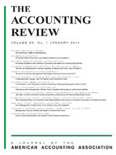
ACCOUNTING REVIEW
Illuminating the Path to Accounting ExcellenceACCOUNTING REVIEW, published by the American Accounting Association, stands as a leading academic journal in the fields of Accounting, Economics, and Finance. With a prestigious Q1 ranking in each of these categories for 2023, this journal showcases high-impact research that is instrumental for professionals, educators, and scholars alike. The journal, which has been actively published since 1996 and will continue through 2024, is known for its rigorous peer-review process and commitment to advancing knowledge in accounting theory and practice. Although it does not offer open access, the articles published in ACCOUNTING REVIEW provide significant insights and remain highly relevant due to their robust Scopus rankings, including being placed in the top 20th percentile across its major categories. This journal is essential for anyone looking to deepen their understanding of contemporary issues in accounting and finance.
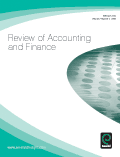
Review of Accounting and Finance
Elevating Academic Discourse in Financial StudiesReview of Accounting and Finance, published by EMERALD GROUP PUBLISHING LTD, is a prestigious academic journal with a longstanding commitment to advancing scholarship in the fields of accounting, finance, and economics. With an ISSN of 1475-7702 and E-ISSN of 1758-7700, this journal has established itself as a key resource for researchers, professionals, and students seeking robust empirical and theoretical insights. It enjoys a strong reputation, reflected in its 2023 Scopus rankings, where it is positioned in the top quartile for Economics and Finance, and holds a Q2 category in Accounting. The journal covers a wide range of topics, aiming to foster discussion and disseminate knowledge that bridges the gap between theory and practice. Although it does not offer open access, its comprehensive scope is invaluable for those dedicated to understanding the complexities of financial systems and accounting practices from a global perspective. Published continuously from 2002 to 2024, the Review of Accounting and Finance is an essential outlet for innovative research that drives the discipline forward.
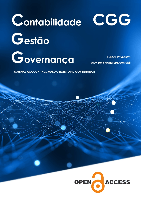
Contabilidade Gestao e Governanca
Fostering Scholarly Communication Across Global BoundariesContabilidade Gestao e Governanca is an esteemed open-access journal published by the Universidade de Brasília, focusing on the dynamic fields of accounting, management, and governance. Since its inception in 1998, this journal has committed itself to fostering scholarly communication and research dissemination within the realm of business administration. With an ISSN of 1984-3925, it offers valuable insights and innovative research findings to academics, practitioners, and students alike. The journal emphasizes rigorous peer review and strives to enhance the understanding of accounting practices and governance frameworks, making it a vital resource for those seeking to advance their knowledge in these critical areas. The journal's dedication to open access ensures that its high-quality content is readily available to a global audience, promoting knowledge equity and collaboration in the field.

Accounting Historians Journal
Bridging Past Practices with Present PerspectivesWelcome to the Accounting Historians Journal, a pioneering publication in the interdisciplinary field of accounting history. Established in 1974 and published by the American Accounting Association, this esteemed journal presents a robust platform for scholars, practitioners, and students to explore the intricate relationship between accounting practices and historical narratives. With an impressive categorization as Q1 in History and Q3 in Accounting for 2023, it stands out in both the disciplines it bridges, making it an essential resource for those aiming to deepen their understanding of the evolution of accounting through varied historical lenses. The journal is indexed under Scopus, ranking #672 out of 1760 in Arts and Humanities' History and #161 out of 176 in Business, Management, and Accounting, reflecting its significant impact within the field. Although not positioned as an open-access publication, it continues to attract submissions that contribute to the ongoing discourse in accounting history, fostering intellectual collaboration and dialogue.
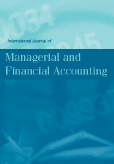
International Journal of Managerial and Financial Accounting
Shaping the Future of Accounting through Rigorous ResearchInternational Journal of Managerial and Financial Accounting is a prestigious publication that offers a platform for innovative research in the field of accounting, specifically focusing on managerial and financial aspects. Published by Inderscience Enterprises Ltd and located in the heart of Switzerland, this journal serves as an essential resource for academics, practitioners, and students dedicated to advancing the understanding of accounting practices. With an impact factor that reflects its growing significance in the field, the journal has been categorized in Q3 in Accounting for the year 2023, based on its Scopus ranking. Its commitment to publishing high-quality papers ensures that it attracts submissions that contribute to the evolution of accounting knowledge and practices. While currently not open access, readers can gain insights into evolving trends and methodologies from the years 2002 to 2024. This journal is a vital asset for those aiming to explore the interactions between accounting and managerial practices, fostering a deeper comprehension that can influence both theory and practice.

Accounting Perspectives
Innovating Perspectives in Accounting Research.Accounting Perspectives, published by WILEY, is a leading journal in the field of accounting and finance, aiming to foster innovative research and discussions that significantly contribute to understanding complex financial landscapes. With an ISSN of 1911-382X and E-ISSN of 1911-3838, this journal serves as a valuable resource for academics and professionals alike, exploring a diverse span of topics within its fields of study. Since its inception in 2007, it has established itself with a notable impact factor, achieving a Q3 ranking in Accounting and a Q2 ranking in Finance in 2023. The journal's position within the Scopus ranks, particularly its #152 out of 317 in Finance and #100 out of 176 in Accounting, underscores its relevance and influence in its respective categories. Although the journal operates under a subscription model, its commitment to excellence ensures that it remains pivotal for researchers, offering insights that are both practical and theoretical. By engaging with current trends and pivotal issues in the field, Accounting Perspectives continues to shape the discourse, making it an essential publication for students and seasoned professionals who aim to advance their understanding and application of accounting principles.